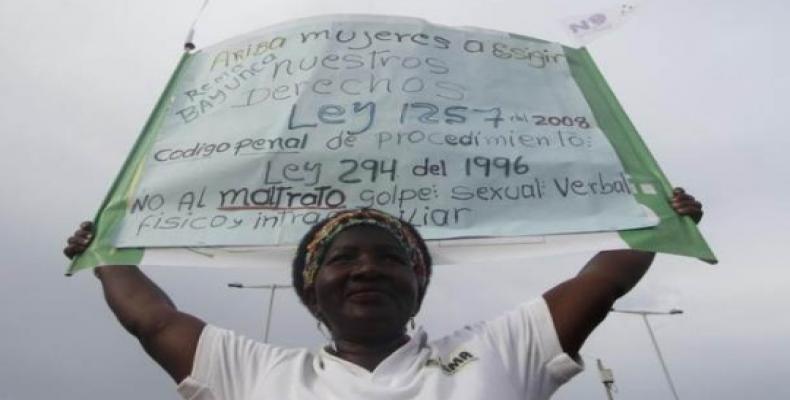Bogotá, August 20 (teleSUR-RHC)-- A month after passing a new law against femicides, Colombian prosecutors say the new challenge lies in changing the way experts are trained to identify and investigate gender-related killings in order to win convictions, Reuters reported Thursday.
Femicide – which is the killing of a woman by a man specifically because of her gender – is a major issue in the South American nation, where it is estimated that one woman is killed every two days on average.
Under Colombia's new bill, which came into effect June 6, femicide was made a distinct and legally defined crime, with jail sentences of 20 to 50 years.
However, questions have arisen in how to enforce this new law if investigators have no prior awareness of or training in how to detect the crime.
Legal experts are now saying measures need to be put in place to ensure that police, prosecutors and forensic experts are all trained to identify and investigate such crimes. This would include new protocols and techniques for autopsies on murdered women, and guidelines in how to identify possible femicide victims, which could include torture, rape and genital mutilation.
Martha Ordoñez, Colombia's presidential advisor on women's rights, said victims of femicide often have a long history of domestic violence, and perpetrators are often current or former partners.
“Femicide represents the most extreme form of violence and discrimination against women. It's quite a concern in Colombia. Some women don't know their rights, that they have the right to be treated with respect and not be abused,” Ordonez added.
Femicide is not only a Colombian problem, however, as human rights groups say it's a growing issue across the region. According to a 2012 report by the Geneva-based Small Arms Survey, over half of the 25 countries with the highest rates of femicide are in the Americas.
According to the report, most perpetrators of femicide target their own family members or spouses.


